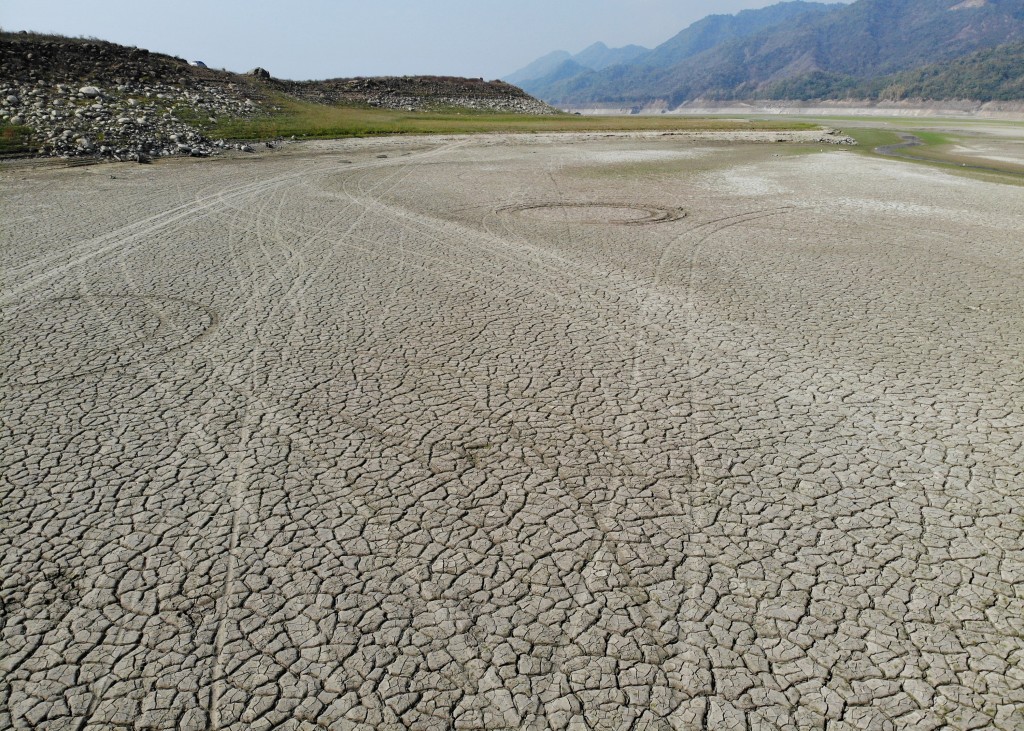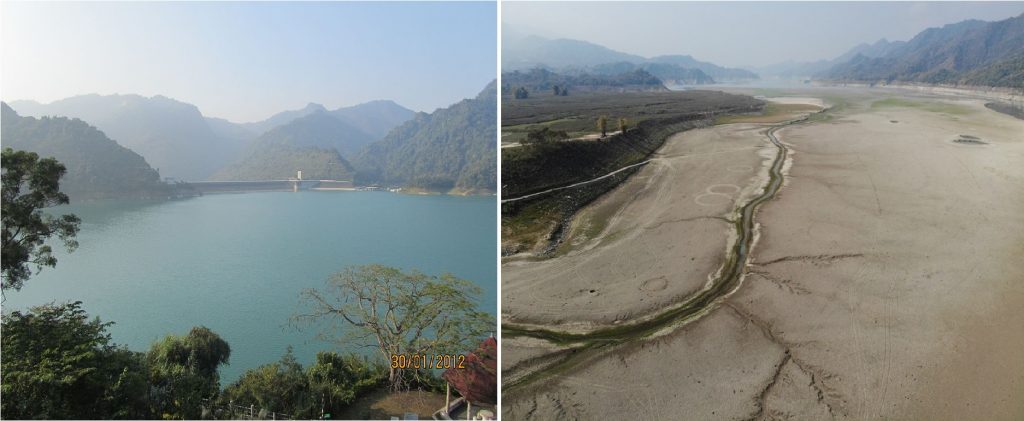
Taiwan is facing it’s most severe water shortage in 56 years. Most of the dams in the catchment areas have dried up and are fast becoming arid. The government in order to address the severe water shortage has set up an emergency response center to salvage the situation.
Last weekend President Tsai Ing-wen said Taiwan had no typhoons in 2020 which are crucial to refill the country’s reservoirs and other water reserves. She urged residents to conserve water and prepare for potential shortages in the months to come. As the dry spell continues, major reservoirs in central and southern regions of Taiwan are nearly bottoming out.
On Monday, Economic Minister Wang Mei-hua said the ministry will continue to look for new water sources, make adjustments to water distribution, and communicate closely with local governments as the drought worsens, CNA reported. The Water Resources Agency (WRA) reiterated the drought response center will monitor water conditions in all areas and review alert levels and water-conservation and drought-resistance measures as necessary.
The water levels in the dams reflect the water emergency in the country. The Zengwen Reservoir in Chiayi County is down to just 15.3 percent of its capacity, Liyutan Reservoir in Miaoli has plummeted to 13.7 percent, and Techi Reservoir in Deji Reservoir in Taichung is down to just 8.2 percent.
According to local media reports, if Plum Rains are unable to replenish reservoirs in central Taiwan, a red alert will have to be issued in May, in which case water would only be made available to certain districts at certain times.

WRA officials have allayed fears of issuing a red alert and said that they are working with local governments to combat the drought based on local conditions and hydrological characteristics.
They point out that drying of dams is ahead of schedule and they have implemented measures such as back-up wells, reducing water pressure, requiring large industrial users to reduce water consumption, and the use of mobile reverse osmosis (RO) water purification equipment. Officials added that Taichung province has dug 58 backup wells capable of providing 137,500 tons of water, compared to Hsinchu’s 17 backup wells, which only provide 30,000 tons.
According to the WRA, Taichung has cut the evening water supply for large industrial users by 20 percent and 11 percent for non-industrial users who consume more than 1,000 cubic meters per month.
Taichung has currently cut the supply of water by 5-20 percent for industrial users and by 20 percent for non-industrial users who consume more than 1,000 cubic meters per month. This has effectively reduced water consumption by more than 20,000 tons per day, and the total amount of water saved amounts to 13 million tons.
Chip production takes a hit

However, water rationing has badly hit the famed Chip manufacturing industry of Taiwan. The island’s chip manufacturing companies are forced to stock up on truckloads of water to prepare for shortages. Water shortage has put chip manufacturing majors such as Taiwan Semiconductor Manufacturing Company (TSMC) under pressure to meet the worldwide demand.
Global manufacturers have said they cannot get enough chips from Taiwan and automotive production has slowed due to the chip shortage, putting pressure on the government and companies to ensure an adequate supply of water.
Ministry of Economic Affairs head Wang Mei-hua said last month the country’s chipmakers are producing at 100 percent capacity to meet demand heightened by a global semiconductor shortage, which has had a particularly large effect on the automotive industry.
Manufacturers in the cities of Chiayi and Tainan — where Taiwan Semiconductor Manufacturing Company, the world’s biggest contract chipmaker, builds iPhone processors were asked to reduce water use by 7% in late February.
Taiwan is one of the world’s most important sources of the advanced chips that power everything from electronic gadgets, household equipment, cameras, smart phones, cars to servers and game consoles. Chip production requires massive amounts of water but the current situation in Taiwan threatens both the industry and the economy of the island nation.
